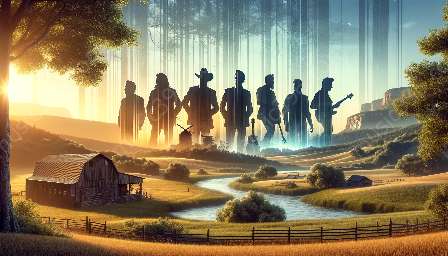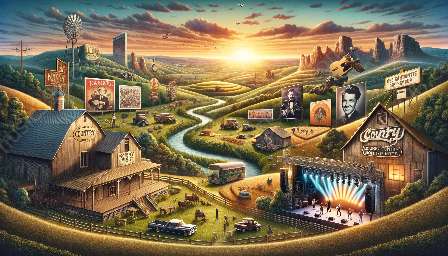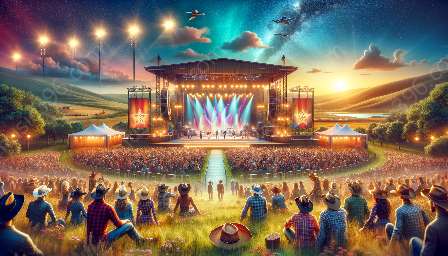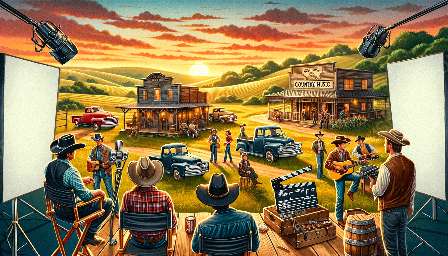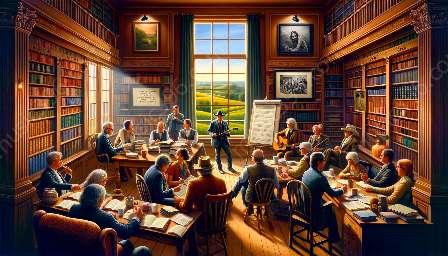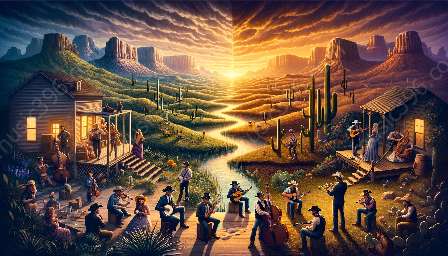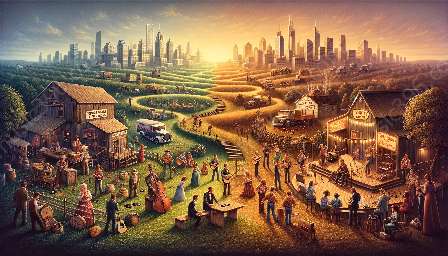Introduction
Country music, often regarded as an integral part of American culture, has evolved through a myriad of cultural influences that have left an indelible mark on its distinct sound and themes. From its humble beginnings rooted in traditional folk music to its proliferation as a global music genre, country music has been fundamentally shaped by historical events, social movements, and a diverse array of cultural nuances.
Early Influences and Roots
The evolution of country music can be traced back to the 1920s when rural, working-class Americans began to express their experiences, joys, and struggles through the medium of music. The genre found its inspiration in the folk music of the British Isles and the musical traditions of African American communities, resulting in a unique blend of musical styles and influences.
Early country music was characterized by its simple instrumentation, heartfelt lyrics, and storytelling themes that resonated with the everyday lives of rural Americans. Artists such as the Carter Family and Jimmie Rodgers played a vital role in popularizing this folk-driven, early form of country music, which laid the foundation for the genre's future evolution.
Defining Events in Country Music Chronology
As country music continued to gain momentum, several defining events emerged, profoundly influencing its trajectory and sound. The launch of the Grand Ole Opry in 1925 marked a significant milestone, providing a platform for country artists to showcase their talents and connect with a broader audience. This radio show not only contributed to the genre's growth but also played a key role in shaping its cultural significance.
The 1940s and 1950s witnessed the rise of honky-tonk music, propelled by artists like Hank Williams and Kitty Wells. The honky-tonk sound, characterized by its raw, emotive vocals and amplified instrumentation, brought a new dimension to country music and captured the essence of post-war America.
The 1960s and 1970s ushered in an era of innovation and diversification within the genre. Country music artists such as Johnny Cash and Loretta Lynn began addressing socially relevant issues through their music, reflecting the changing cultural landscape of the times. The emergence of the country-pop crossover further propelled the genre into the mainstream, as artists like Dolly Parton and Glen Campbell achieved widespread appeal with their crossover hits.
Cultural Influences Shaping the Genre
Beyond the realm of music, country music has been profoundly influenced by cultural factors that have shaped its identity and resonance. The American South, with its rich tapestry of traditions, folklore, and storytelling, has been a wellspring of inspiration for country music. Themes of resilience, love, and the hardships of rural life have been recurrent motifs in country music, reflecting the cultural experiences and values of the region.
The advent of radio and television in the 20th century played a pivotal role in disseminating country music to a wider audience. Shows such as


